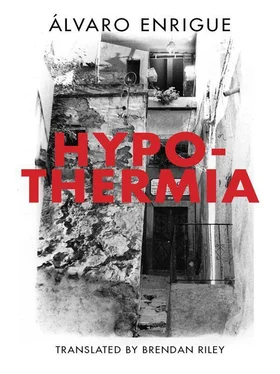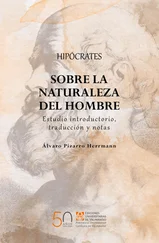Marcus stepped decisively from his building’s vestibule, then recoiled as he turned to walk north. He took courage from waving hello to some of the neighbors. They were still awake, reeking of sweat, sitting out on their front stoops where they’d been lazily talking all night long. He’d stopped going north of Fuller Street after the Hispanics began moving into that part of the neighborhood. To get to the Metro now he would normally head south a few blocks and then turn and walk back north by way of 12th Street, no-man’s-land. He’d also changed supermarkets, and now shopped at one farther away which didn’t sell such strange, monstrous fruit.
The Cuban exiles from the Mariel Boatlift were the first birds to land, basking in the glow of positive press; and there had been a certain romance to the new and different smells on the street. Then came the Dominicans, the Salvadorans, the Ecuadorians, and the Peruvians. In the last few years the Mexicans had shown up: the gringos’ evil twin.
He shook hands with the filthiest of his neighbors and then headed up the street. He crossed Fuller without looking to either side. Staring at the ground, he passed by the building on the opposite corner as fast as he could. He was walking like someone who doesn’t want to be recognized, but there was nobody sitting in the doorway. It might have been the sticky August heat, or the memory of his birds in their shadows, but the faster he walked the more trapped he felt. It was the same feeling he’d had as a boy, if it was getting late and he took a shortcut home through the muddy backstreets to avoid a beating from his father, the pastor. He’d always been, and still was, the black sheep of the family. The third son of a Baptist minister, Marcus was the only bad apple. Still walking north, he quickened his step and thought that the Spanish he heard spoken beyond Fuller — so lacking in consonants — sounded like pigeons cooing. He was out of breath by the time he reached the corner of Harvard. Turning east he found that he didn’t recognize the street. In another lifetime, before going to prison, before the Cubans, he’d had a steady girlfriend from this neighborhood. She’d lived in one of the stone houses on the left side of the street but he couldn’t remember exactly which one. In those days, now faded and all but forgotten, the pastor still believed that Marcus might be reformed. He didn’t have to walk much further before he could make out the sign on Guadalupe’s up ahead. He covered the last stretch almost running, the toolbox knocking against his knee.
It’s not that Marcus had turned out to be bad, not exactly, but he had never been able to rise to the pastor’s expectations. So he had early on succumbed to the notion that any flaw or weakness in himself meant that he was, as a whole, irredeemable. During the four years of his first prison stint no one ever came to visit him, not once. Even so, he spent his time thinking of going home, about regaining his dignity by playing the role of the prodigal son.
They let him out on an icy Friday in February. To better stage his dramatic return to the world of the living, Marcus spent his first two nights in a hotel, waiting to appear at his father’s church during Sunday services. In order to proclaim his rebirth as loudly as possible, he paid more than he could afford for a brand new blue suit. On Sunday he arrived at the church ahead of schedule, then hid out in a café, killing time so the whole congregation would be there to witness his return. As they were singing the opening hymns he came walking up the aisle with a slow, humble step dogged by the worshippers’ murmuring. He sat down just a few rows from the altar, in the pews opposite those occupied by his mother and brothers, his sisters-in-law, his older nephews, and the children born while he’d been away. Before the pastor appeared to deliver his sermon from the pulpit, one of the ushers was sent to escort Marcus out of the church.
The front door to Guadalupe’s was still locked, so Marcus went round to the service entrance and knocked hard. He was already soaked in sweat and hadn’t even started working yet. It must have been about a year now since his last outbreak of perfectionism; he remembered painting his room canary yellow one day during an equally unpleasant heat wave. When he’d come back to the apartment with the can of paint, the young girl who was turning tricks for him at the time was asleep. He punched and slapped her awake and, in no time at all, had kicked her out with all her belongings. Then he cleaned the corners, emptied out the closet, pushed all the furniture into the center of the room, and covered it all with a sheet. He finished painting the four walls quickly and thought that he might continue with the kitchen. Instead, while the first coat dried, he got a chair out from under the sheet and sat down to do some bird-watching. The bedroom was impeccable for half the afternoon — floor mopped, furniture dusted, window washed — but then he didn’t have the strength to continue. All the satisfaction he required came from observing his neighbors’ squalor from a sterile vantage. He called the contractor to let him know he was ready to take on some new jobs.
Although he wasn’t wearing a watch, he knew from the angle of the sun that it was no longer so early, so he knocked harder. The door opened abruptly. A young woman — slight shoulders, sinewy arms and legs — stared out at him with a confused mixture of surprise and fear. She said something to him in Spanish. Marcus thought he could probably pick her up off the ground with one hand. In English, he said that he had come to fix the electricity. She told him to come inside, that her husband would be right back. He stroked his scraggly beard, bit his lower lip, and crossed the threshold with professional resolve.
He found the semidarkness inside the restaurant quite disorienting. A silent tremor shook the air and something moved among the furniture. The woman noticed that he was uneasy. It’s the kids, she told him, then shouted at them in a threatening voice. They instantly bolted for the stairs and he only managed to get a good look at the last one: about ten years old, barefoot, shorts, no shirt — a long scrawny torso like a plucked chicken. The woman screamed at them again and their laughter answered from a back room. Then she led Marcus to the dining room and showed him the fuse box. The cooks get here at eight-thirty, she said. See if you can fix the problem before then. I’ll be upstairs if you need me.
The restaurant fit the typical TV image he’d gotten of Mexico: large windows, bright colors, mismatched tables. The relative familiarity of the place allowed him to concentrate on the job at hand. He dismantled the fuse box, checked the circuit, and quickly located the socket causing the short. Working very calmly, he isolated the zone, replaced the burned-out pieces, upgraded the wiring, and cleaned the insulators. Every so often he turned to look toward the door that led from the dining room to the house, with the hope of catching sight of some bird — any bird at all.
As the restaurant owner didn’t return, and there was no one to keep an eye on him, he left the fuse box hanging open so that he could charge them for a second hour of service. He gathered up his tools, walked between the tables, looked out the windows, and scanned the inside of the empty kitchen leisurely through the porthole on the door. He thought that if he’d known that the job was going to be so easy he’d have bought himself a newspaper to have something to pass the time with. At last, he sat down at a table next to the restroom, facing the doorway in case anybody stuck their head in. He closed his eyes for a catnap, thinking that he could be doing exactly the same thing at home.
He was on the verge of falling asleep when he heard a very faint voice. It was calling, with a certain insistence, from inside the restroom. He got up and cracked the door open so that he could listen closely without seeing inside. The voice, he confirmed, was speaking to him, and in Spanish. A chill ran down his spine and he broke out in a cold sweat. Yes? he asked in English. The voice said something else to him he couldn’t understand. Then, with his heart in his mouth, he stuck his head inside. Whoever it was, he saw, was calling to him from inside the closed toilet stall. The tremulous voice could have belonged to anybody except a man. Probably a child. Yes? Marcus asked again. He didn’t understand the answer, which now seemed to come from a young woman. He couldn’t even say if it had spoken to him in English — he was too busy thinking that the rest of the family flock was back inside the house, a good distance away, and he was here alone, on the verge of glory. He touched the stall door with his fingertips and felt it give slightly; it wasn’t bolted. He swallowed and asked again what the person needed. The voice, perhaps an old woman’s, repeated in English that it needed napkins. He went out, got a handful of paper napkins from the counter, and went back inside. He steadied himself with his left hand on the upper part of the stall — he could see his own sweat dripping onto the paper napkin, and said: Here they are. The voice thanked him, said that he could pass them over the top. Still undecided, he rested his head against his forearm. A moment later, with his eyes closed, he raised the handful of napkins and felt them snatched out of his hand. He said, You’re welcome, and spun around. He closed up the fuse box as fast as he could, grabbed his things and left the dining room. Before leaving the restaurant he shouted to the whole bunch of them that he’d be back later for his money.
Читать дальше












